
International Professional University of Technology in Osaka
Defining a new form
of university.
Today’s society is facing complex challenges that involve diverse issues and are constantly changing. To solve them, “static-expertise”, i.e., knowledge in a single specialized domain does not suffice.
That is why we aim for “dynamic creative knowledge”. This knowledge crosses the boundaries of existing academic disciplines by integrating the latest technologies and findings gained through practical experiences.
Our students and faculty members will work together to explore every avenue in full collaboration with industry, the local community, and people around the world. They will create new value by leveraging theory and practice and obtain the skills necessary to create a better future. Our graduates are “Designers in Society” who can deal with diverse and complex societal issues.
This is the mission of the International Professional University of Technology in Osaka as a new university in the coming age.
Message from the President
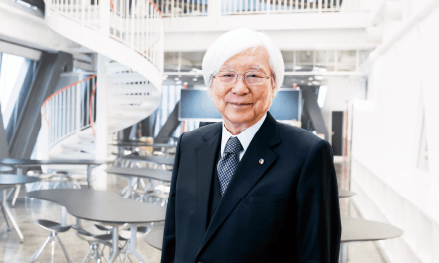
President
Hiroyuki Yoshikawa
A new “ideal university education” is coming into being.
Over the many years that I have been involved in university education, I have had first-hand experience of how its limitations prevent universities from developing the “new professionals” that society really needs for an era in which the world is rapidly evolving.
The learning on offer at IPUT Tokyo, however, transcends these limitations.
Thanks to generous support from teaching staff with a wealth of professional experience, our students can effectively acquire new “scholarly knowledge” and gain “hands-on experience” through lectures, seminars, practical training, internships, and contact with industry people and the local community.
I believe that this is exactly the “ideal university education” that I have wished to create for so many years, and that, in these difficult times, can produce hard-working young people.
We are cultivating professionals, “Designers in Society”, who can apply the knowledge and skills acquired during four years of study to solve social challenges, thus contributing to the creation of the “good society”.
The International Professional University of Technology in Osaka – a place where students can learn how to transform society’s expectations into reality by “making dreams come true”.
President Hiroyuki Yoshikawa held a number of prestigious positions in the Japanese academia. He was formerly President of the University of Tokyo, of the Open University of Japan, and of the National Institute of Advanced Industrial Science and Technology. He was also elected President of Science Council of Japan, of Japan Society for the Promotion of Science, and of International Council for Science (ICSU). He was also President of International Academy for Production Engineering (CIRP) and of the Japan Society of Precision Engineering. Educated as an engineer in precision engineering at the University of Tokyo, Dr. Yoshikawa is now Professor Emeritus of the University of Tokyo after spending many years in research in general design theory and general synthesiology theory. One of his brain children includes the IMS project (Intelligent Manufacturing Systems), an international industry-academia collaborative research project, participated by Japan, EU, and the USA among others.
Message from the Vice-President
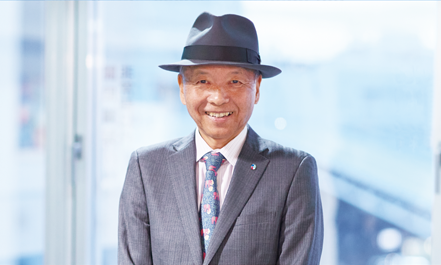
Vice-President, Professor
Minoru Asada
Universitas Renaissance
Some students enter university after elementary school, junior high school, high school, technical college, etc., or from other universities, or even after quitting their jobs. In any case, the university itself is regarded as the highest academic institution. But what exactly is a university?
According to Shunya Yoshimi[1], in Western Europe, the university was born as a cooperative for teachers and students to secure transcendence (freedom) that could oppose secular and religious authority in the Middle Ages. In other words, the original meaning of the word “university" (universitas) is “union."
Most professional universities are small and single-department colleges that enable close communication between teachers and students. In this sense, they are similar to private tutoring schools* and can be a center for the creation of new knowledge. In the entrance examination, the interview is the most important part of the admission process, and communication already begins there.
From static knowledge to dynamic knowledge!
What is the new knowledge that professional universities are aiming for? Existing four-year universities are subdivided into faculties and departments, and students acquire specialized knowledge in their respective fields. However, it is difficult to deal with the complex and dynamically changing issues of modern society with only knowledge in individual specialized fields. Dynamic knowledge, including knowledge of the latest technologies that are constantly changing, is required, transcending the boundaries of various disciplines and even industries.
Typical examples are the serious global issues represented by the SDGs. The freedom that professional universities secure also includes freedom from these many difficult challenges such as gender balance and quality education. To this end, we place more emphasis on practical training outside of the university than on classroom learning within the university and create dynamic knowledge by constantly keeping an eye on open society, improving problem awareness and acquiring knowledge and wisdom that will become flesh and blood of students.
Realization of an inclusive society
Japanese society faces a variety of discrimination issues, and a typical one is the gender balance. There is a need to ensure diversity in all aspects in order to create our own values, rather than relying on existing views and values. By respecting each other’s individuality based on differences in gender, race, age, background, etc., we can ensure freedom from various discrimination issues and build a rich human network. This will enable us to confront the field of social advancement with a new sense of values. This extends not only to industry, but also to academia, politics, government offices, local governments, NPOs, and various organizations. Even if our students enter individual fields after graduation, they will make full use of the human networks they have cultivated to transcend the boundaries of their fields and become designers for the issues facing society as a whole.
[1] Shunya Yoshimi “Universities as idea – Beyond hopeless,", The University of Tokyo Press, 2020.
* A typical exapmple is TEKIJUKU.
Tekijuku was a school established in Senba, Osaka, the main trading route between Nagasaki and Edo in 1838 during the Tenpō era of the late Edo period. Its founder was Ogata Kōan, a doctor and scholar of Dutch studies (Rangaku). The foreign language curriculum focused primarily on medicine but also taught astronomy and other western sciences.
The school was one of the predecessors of Osaka University and Keio University, through the work of the most notable alumni, Ogata Koan and Fukuzawa Yukichi, respectively.
During the 25 years that Tekijuku was in operation, it is said that approximately 3,000 students were admitted to the school. At Tekijuku, academic studies were conducted under a system of friendly competition between those who taught and those who studied, which was different from the school system that had existed since the Meiji era.
Taught at Osaka University and Osaka University Graduate School. Currently Strategic Adviser for the Symbiotic Intelligent Systems Research Center at the Institute for Open and Transdisciplinary Research Initiatives, Osaka University. Doctor of Engineering. One of the founders of RoboCup and a leading figure in the field of cognitive developmental robotics.
Industry experts and experienced academics supporting a new type of learning
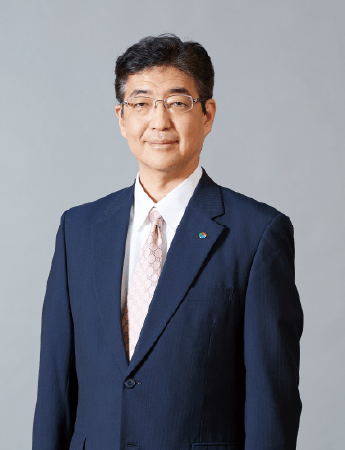
Katsuhiro
Ajito
Dean of Faculty, Professor
Researched brain neurotransmitters using optical tweezer techniques at NTT Basic Research Laboratories. Also involved in a project for the Ministry of Internal Affairs and Communications, and in the international standardization of ultrahigh-speed wireless technology and other areas. University of Tokyo, Graduate School of Engineering, PhD program in Applied Chemistry, Doctorate in Engineering
Researched brain neurotransmitters using optical tweezer techniques at NTT Basic Research Laboratories. Also involved in a project for the Ministry of Internal Affairs and Communications, and in the international standardization of ultrahigh-speed wireless technology and other areas. University of Tokyo, Graduate School of Engineering, PhD program in Applied Chemistry, Doctorate in Engineering
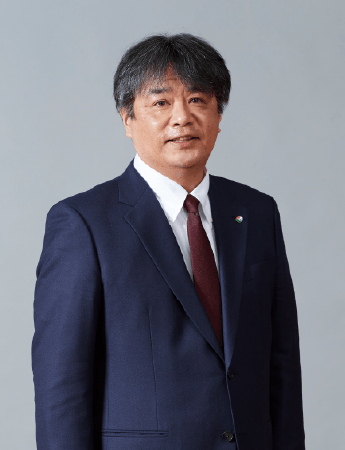
Yukihiro
Nakamura
Department Chair, Professor, Department of Information Technology
Worked on research and development in training methods for industrial robots equipped with external sensors, networked robots, lifelogs, and other areas for Nippon Telephone and Telegraph Corporation (NTT). Member of the Japan Society of Mechanical Engineers, Robotics Society of Japan, Society of Instrument and Control Engineers, Institute of Electronics, Information and Communication Engineers, and Institute of Image Electronics Engineers of Japan.
Worked on research and development in training methods for industrial robots equipped with external sensors, networked robots, lifelogs, and other areas for Nippon Telephone and Telegraph Corporation (NTT). Member of the Japan Society of Mechanical Engineers, Robotics Society of Japan, Society of Instrument and Control Engineers, Institute of Electronics, Information and Communication Engineers, and Institute of Image Electronics Engineers of Japan.
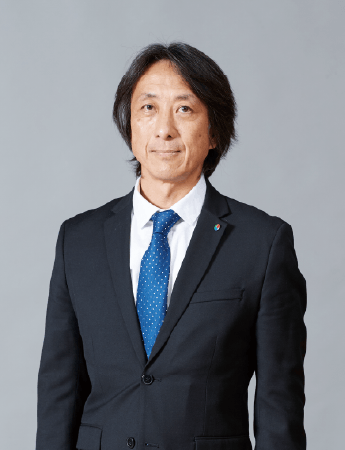
Takashi
Yamaguchi
Department Chair, Professor, Department of Digital Entertainment
Director and producer for foreign game companies at EA and Eidos, and online gaming development manager at DWANGO Co., Ltd. Teaching professor at Takarazuka University. Representative director at SHAKE HANDS Inc.
Worked on research and development in training methods for industrial robots equipped with external sensors, networked robots, lifelogs, and other areas for Nippon Telephone and Telegraph Corporation (NTT). Member of the Japan Society of Mechanical Engineers, Robotics Society of Japan, Society of Instrument and Control Engineers, Institute of Electronics, Information and Communication Engineers, and Institute of Image Electronics Engineers of Japan.
Faculty and departments
Faculty of Technology
Department of
Information Technology
Drives innovation for society by AI, IoT, and robotics.
As DX (digital transformation) gathers pace, innovation is born through the adoption of AI, IoT, robotics, big data, and other emerging technologies. We train leaders who can deliver solutions for challenges facing the industry and society in the super smart “Society 5.0” era.
AI Strategy Course
Provides step-by-step training in topics ranging from the theory of artificial intelligence to programming skills for implementation. We nurture and train professionals who can design new AI services.
IoT Systems Course
Provides training in such topics as device controls, data aggregation theory, and IoT device programming. We nurture and train professionals who can design new IoT services.
Robotics Development Course
Provides training in design of mechanical systems that have the three technical components of robot: sensor system, intelligent control system, and actuator system. We nurture and train professionals who can design and develop useful robots and robot applications in the society.
Faculty of Technology
Department of
Digital Entertainment
Impresses and amazes the world by entertainment technology.
Now in the era of 5G (fifth-generation mobile communications systems) and into the future, the unlimited possibilities of interactive content will be leveraged to transform society along its real and virtual dimensions. We nurture and train creators who will produce innovative entertainment utilizing the latest digital technology.
Game Production Course
Provides training from the basics onward in the theoretical side of programming technology for game development. We nurture and train creators who will operate at the forefront of the evolving and expanding digital entertainment industry.
CG Animation Course
Providing training from the basics onward in the set of processes and programming skills required for creation of visual content and CG. We nurture and train professionals who will design the future of digital entertainment.
Our Campus
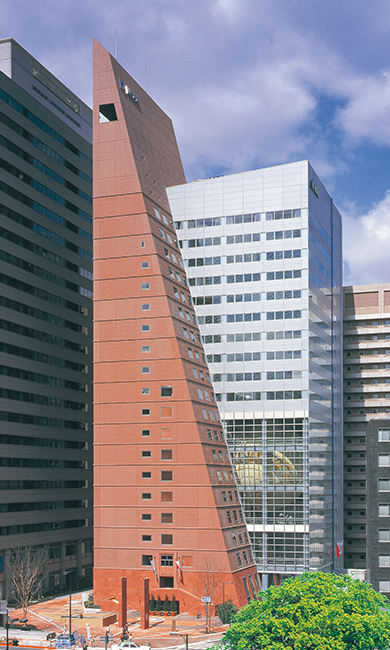
3-3-1
Umeda, Kita-ku, Osaka
530-0001
Tel.
+81-6-6347-0111
univ.osaka@iput.ac.jp



